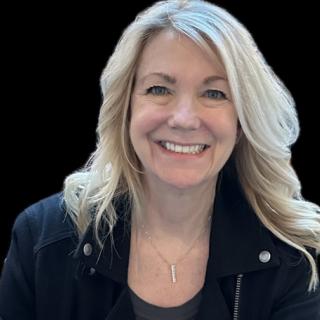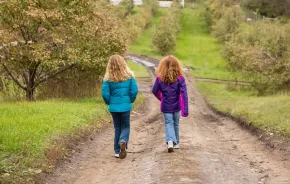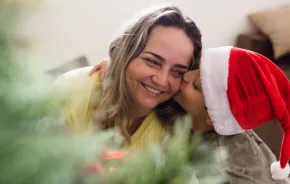(Introducing our newest blogger, Yaffa Maritz, veteran parent educator, contributor to Community of Mindful Parents and the founder of Listening Mothers.)
What does Oprah have to say about the Community of Mindful Parents? Maybe nothing directly, but indirectly, a lot! A few weeks ago, Oprah interviewed John Kabbat Zinn, the founder of the internationally successful program Mindful Based Stress Reduction, on her radio program. Zinn is perhaps one of the first scientist in the US to help popularize the concept of mindfulness by conducting extensive research about the impact of mindful practices on well-being.
During the interview, Oprah asked about the challenges of becoming a mindful parent. Zinn agreed that mindfulness in parenting can be the most necessary component of good, nurturing parenting -- but also the most difficult to maintain on an ongoing basis. He said something like this: As a parent, you want to be fully present with your kid, and that is the hardest thing to do, but it is also the most profound spiritual practice. The kids he added, are like little Zen masters: They push our buttons, they challenge our convictions, they are cute and naughty sometimes all at once, and depending on how we respond, we can nurture and grow through the experience or react negatively and increase our stress.
Of course, Zinn admits, most of us are trying the best, but still fail to hold to the high road some of the times. That is not so bad, as intimacy and nurturing grows out of authentic interactions when rapture and repair is a natural part of the communication. Through practicing of mindfulness, we may become better in self-regulation, better in reflecting, more able to forgive, become less judgmental, less, rigid, and more compassionate both toward our self and toward our children.
In his book, Everyday Blessings: The Inner work of Mindful Parenting, John Kabbat Zinn gives tips for parenting mindfully. I want to mention just two out of the 12:
1. The greatest gift you can give your child is yourself. That means that part of your work is growing in self-knowledge and in awareness. We have to be grounded in the present moment to share what is deepest and best in ourselves.
2. Practice seeing your children as perfect just the way they are. See if you can stay mindful of their sovereignty from moment to moment and work at accepting them, as they are when it is the hardest thing to do.
These two points seem the key to raising children who are happy, resilient, and secure. In our groups (Reflective Parenting and Listening Mothers) we repeatedly discuss the notion of the COAL parent: Curious, Accepting, Open and Loving. So simple, yet so hard to do!
I am reading an interesting book by William Dalrymple called Nine Lives: In Search of the Sacred in Modern India, in which the author dazzles the readers with stories of nine different people in India. In one of the stories: “The Dancer of Kannur,” the main character, Hari Das, describes his life as divided between the holy and the mundane. Being from the lower caste, he works as a manual laborer, but being part of the traditional Theyyam dancers, a religious dance troupe, he is the most celebrated dance . When he dances, “the light shines through you, you become a deity,” he says, but dance season is only December-February; the rest of the year, he digs ditches and fetches water, wearing his dirty work cloths, not the beautiful garment he wears as a dancer. He tells how during the dance season he is worshiped like a god; dignitaries kneel in front of him kissing his feet. But after the season is over, the same people will not recognize him and will often abuse and ridicule him.
Like Hari Das, we all contain within us a sparkle of light, and above all, our children. At times, in challenging moments, it is hard to see the light shine through, but as we practice living mindfully, we will be no longer to be misled by the “dirty clothes,” but will be able more often than not, to see the beautify peeks through. John Kabbat Zinn pointed that in many languages, "heart" and "mind" are not separate word . In Hebrew, the words for "pay attention" (be mindful) are translated directly as “put your heart.” Can we all put our heart where our mind is, set our intention to become explorers, look for the preciousness in every moment , in every being? I am sure Oprah would approve! As a community we can support each other in this journey, to learn more about how you can join our groups or contribute to our forum, visit the Community of Mindful Parents.











